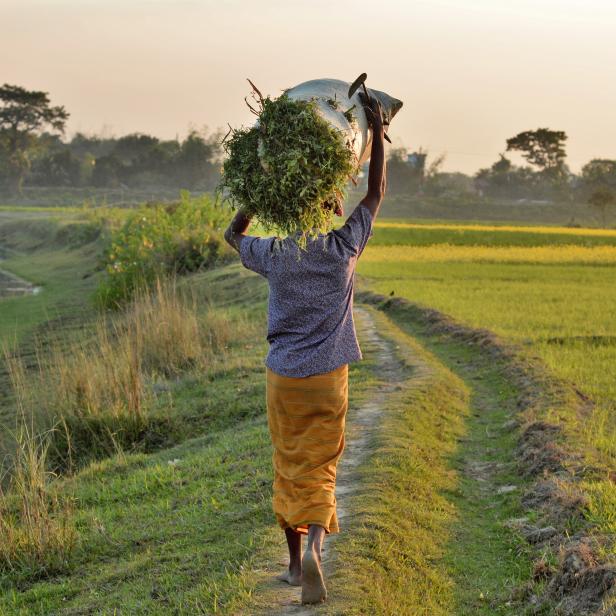
Getty Images/Robin Rahman
Why Bangladesh Has Six Seasons Instead Of Four
The seasons are determined by more than just the temps.
Most people experience four seasons: winter, spring, summer, and fall/autumn. However, those four don't extend to every place on earth. Because of the equatorial location of the tropics, that zone only experiences two seasons: wet and dry. Areas near the Indian Ocean, meanwhile, generally experience three seasons: winter, summer, and monsoon. For various reasons including agriculture, commerce, and cultural tradition, Bangladesh divides these three seasons into six: summer (grisma, in Bengali), monsoon (barsa), autumn (sharat), late autumn (hemanta), winter (shit), and spring (basanta).
The Bengali year begins with summer. This occurs from the equivalent of mid-April to mid-June, when the weather is hot and dry with the occasional violent storm. Monsoon season traditionally spreads from mid-June to mid-August, and brings with it up to 85% of the year's total rainfall. A gradual decrease in temperature and humidity characterizes autumn, from mid-August to mid-October, then things get even cooler from mid-October to mid-December during late autumn. Mid-December to mid-February brings winter, the coolest and perhaps most pleasant season in Bangladesh, with average temperatures of 11–20ºC (52–68ºF). Finally, spring takes place from mid-February to mid-April, when warm breezes pick up and periodic thunderstorms punctuate the afternoons. Learn more about the seasons in the videos below.
This article first appeared on Curiosity.com.


















